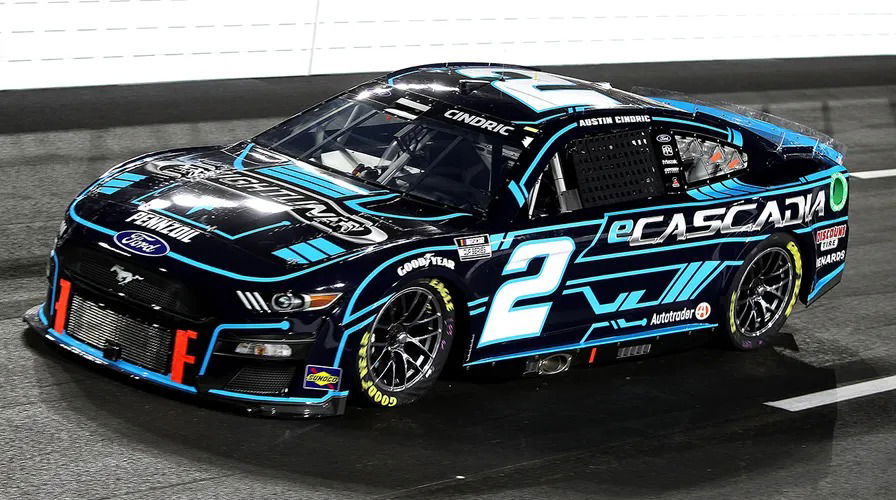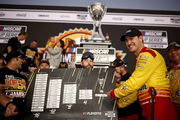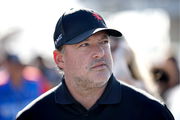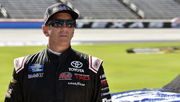

California’s aggressive electric vehicle (EV) mandate aims to ban the sale of new gas-powered cars by 2035. This sweeping policy, adopted by California and 11 other states, requires that at least 80% of vehicles sold be zero-emission within the next decade. The state argues this is crucial for reducing pollution and combating climate change. However, the mandate has sparked fierce debate nationwide. Critics say it’s unrealistic and threatens consumer choice and affordability.
Watch What’s Trending Now!
Now, elsewhere, the U.S. Senate is now considering a bill that could overturn California’s ambitious EV mandate, reflecting growing opposition from automakers and lawmakers. If passed, it would prevent states from setting their own stricter emissions standards. Amid this turmoil, a surprising new voice has emerged. Rick Hendrick’s business partner is preparing to take a stand against these government mandates, adding fuel to the fire in the ongoing EV battle.
ADVERTISEMENT
NASCAR’s powerful partners face off against California’s EV mandate
Rick Hendrick and General Motors share a long and successful partnership. Hendrick Motorsports, one of the most decorated teams in NASCAR history, has been Chevrolet’s flagship operation since the 1980s. Rick Hendrick himself is also one of the country’s largest Chevrolet dealers, with a vast network of showrooms and dealerships. Needless to say, his influence stretches from the racetrack to the showroom floor, making him a key player in both motorsports and the auto industry.
Now, this partnership is being tested by California’s sweeping electric vehicle (EV) mandate. The state’s new rule requires that 80% of new cars sold by 2035 must be zero-emission vehicles. GM, along with other major automakers, has voiced concerns over the mandate’s pace and feasibility. According to a recent Wall Street Journal report, GM and several dealership groups are preparing to challenge the state’s timeline, with Rick Hendrick joining the pushback as a prominent GM dealer.
GM Is Pushing Hard to Tank California’s EV Mandate – @WSJ
– “General Motors went all in on electric cars. Now it is racing to reverse the nation’s most aggressive EV mandate.” https://t.co/qkvR9Ayt9N
— Adam Stern (@A_S12) May 19, 2025
ADVERTISEMENT
Hendrick and other dealers argue that the mandate could hurt consumers and businesses, maintaining that the current EV infrastructure is not ready to support such a rapid transition. Many buyers still prefer gasoline vehicles for their affordability and convenience. “We’re not against EVs. We’re against being forced to sell them before the market is ready,” one dealer said. Consequently, Hendrick and co. are lobbying lawmakers, emphasizing the need for a balanced approach that supports both innovation and consumer choice.
As the debate heats up, Rick Hendrick’s role as both a NASCAR legend and a business leader puts him at the center of a national conversation about the future of the American car market. The outcome of this battle could set a precedent for how much control states have over vehicle emissions and how quickly the industry is expected to change. With lawmakers, automakers, and dealers all weighing in, the next few months will be critical in determining the future landscape of American automotive sales.
ADVERTISEMENT
Top Stories
NASCAR 2026 Championship Format Explained: Points System, Bonuses, Stages & More

7 NASCAR Drivers Facing a Do-or-Die Situation in the 2026 Season

Tony Stewart Takes a Dig at the Daytona 500 With 7-Word Chili Bowl Verdict Amid Souring NASCAR Ties

Livid Fans Rip Into FOX Sports as They Publicly Call Out Daytona 500 Disgrace

NASCAR Insider Reveals Growing Industry Anxiety After Greg Biffle’s Fatal Plane Crash

How California’s EV mandate could impact NASCAR
California’s aggressive push for electric vehicles isn’t just shaking up dealership showrooms. It could also have ripple effects throughout NASCAR. The sport’s deep roots are tied to gasoline engines, roaring V8s, and the culture of American performance cars. NASCAR’s biggest manufacturers, including Chevrolet (Rick Hendrick’s partner), Ford, and Toyota, are all investing heavily in EV technology to keep up with changing regulations and consumer trends.
If California’s mandate spreads nationwide, automakers may shift more resources toward developing electric vehicles and away from traditional internal combustion engines. This could eventually impact the types of cars NASCAR teams race and the technology they use. While NASCAR has begun exploring hybrid technology and alternative fuels, a full transition to electric racing would be a massive cultural and technical shift.
ADVERTISEMENT
For teams like Hendrick Motorsports, the mandate could mean more pressure to align with manufacturers’ EV goals. Sponsorships, manufacturer support, and even the fan experience could evolve. Some fans worry that the unique sound and feel of NASCAR racing could be lost if the series moves toward electric power.
And then there’s also the business angle. Many NASCAR owners, including Rick Hendrick, operate large dealership networks. If forced to sell mostly EVs before the market is ready, their bottom line could suffer. That financial strain could trickle down to the track, affecting team budgets and the overall health of the sport.
In short, California’s EV mandate is more than just a political issue. It’s a sign of the changing landscape facing NASCAR and its partners. The choices made in statehouses and boardrooms today could shape the future of stock car racing for years to come. A penny for your thoughts?
ADVERTISEMENT
ADVERTISEMENT
ADVERTISEMENT
ADVERTISEMENT

